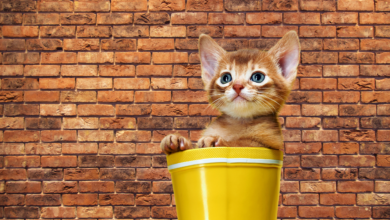
Let’s be honest—our pets have more energy than we do. But that doesn’t mean we can’t keep up (mostly), especially with a fun and consistent pet exercise routine.
So… Why Does Your Dog Zoomie at 2 A.M.?
(Understanding Why Pet Exercise Matters)
If you’ve ever been jolted awake by the sound of claws skidding across the floor, you’re not alone. My dog Max once did a full Olympic sprint through the hallway at midnight, tripped on his own tail, and knocked over a lamp. Was he possessed? Nope—just bored and under-exercised.
The truth is, pets don’t just “calm down” with age. They need an outlet. A structured pet exercise routine can work wonders—not just for their body, but for their sanity (and yours). Regular physical activity for pets keeps them healthy, engaged, and less likely to destroy your houseplants.
Dog Workouts at Home: Easy Pet Fitness Routines Indoors
You don’t need a giant backyard or fancy treadmill to give your dog a good workout. Seriously. I live in an apartment, and my pup still gets his steps in like he’s training for a marathon. Here’s what works when the outdoors just isn’t an option:
(1) Stairs = Nature’s Treadmill
Toss a ball up and down the stairs a few times (carefully!). It’s a great dog exercise idea, especially for those high-energy dogs like Huskies and Border Collies who act like caffeine runs through their veins.
(2) DIY Obstacle Course
Got pillows? Chairs? A hula hoop? Boom—you’ve got a homemade dog workout setup. Bonus points if you narrate like a sports commentator while your dog weaves through it.
(3) Tug of War + Training Commands
Turn tug sessions into mental workouts: mix in commands like “drop it,” “wait,” or “sit” in between rounds. Your dog stays engaged, and you sneak in some obedience practice.
Indoor Cat Fitness: Cat Exercise Ideas That Work
Cats are sneaky fit. One minute they’re loafed on the windowsill, the next they’re leaping 6 feet straight up to swat a bug you didn’t even see.
But indoor cats need cat exercise too. Otherwise, they get bored—and a bored cat is just a chaos machine with fur.
Try this:
Wand Toys
Nothing wakes up a sleepy cat like a wand with feathers. Channel your inner bird and flutter it around until your cat goes full jungle mode.
Boxes, Tunnels & Climbing Towers
Cats love elevation. Mine once spent 2 hours perched on the top shelf like she was queen of the room. Give them places to climb, jump, and hide—and watch them turn into feline parkour champions.
The Classic Laser Game (With a Twist)
Sure, it’s fun watching them chase the red dot. But always let them “catch” a real toy at the end. No one likes endless disappointment. Not even your cat.
Small Pet Workouts: Exercise for Rabbits, Hamsters & Guinea Pigs
Hamsters, rabbits, guinea pigs—they may be small, but they’ve got big energy and deserve their share of pet activity routines.
- Hamsters thrive with safe running wheels and cardboard mazes.
- Rabbits need floor time to hop around (and sometimes destroy a corner of your rug—true story).
- Guinea pigs love tunnels and a good veggie hide-and-seek game.
Think of it as small animal fitness—adorably effective and incredibly important.
Senior Pet Exercise: Gentle Fitness Routines for Aging Companions
Older pets aren’t exempt from movement. In fact, low-impact pet exercise helps them stay mobile longer and feel better every day.
My neighbor’s 12-year-old Labrador, Daisy, takes two short walks a day and does gentle stretching (with help, of course). She still gets the zoomies… just in slow motion now.
Here’s what works:
- Short, slow walks
- Gentle fetch in soft grass
- Swimming (if your dog likes water—some are more drama queen than fish)
- Light play with soft toys
Cats? Keep playtimes short but regular. Even five minutes of batting a string counts toward their daily feline fitness.
Mental Pet Exercise Games for Sharp Minds
Physical activity is great—but mental stimulation is your secret weapon in any pet fitness routine. Pets get bored just like us, and brain games can be just as tiring as a jog around the block.
Here’s what keeps their minds active:
- Puzzle feeders (my dog figured his out, then stared at me like, “Next level, please.”)
- Scent games (hide treats and let them sniff ‘em out)
- Teaching new tricks (yes, even cats can learn—if you bribe them with tuna)
Even a five-minute mental workout can calm down a restless pet. Seriously, try it. It’s like giving them a tiny brain massage.
Best Toys for Pet Exercise & Daily Movement
Interactive toys are a lazy pet owner’s dream. They keep your furball busy while you… don’t.
Best picks for pet fitness:
- Treat balls: Keep ‘em rolling and your pet chasing.
- Rope toys: For tugging, chewing, and dramatic battles.
- Tunnels & pop-up tents: For rabbits, cats, and curious critters.
And if you’re on a budget? A sock tied in a knot is basically the gold standard of dog toys. Don’t overthink it.
Daily Pet Exercise Routine: What a Balanced Day Looks Like
For Dogs
- Morning: 15-minute walk or fetch
- Midday: Tug-of-war or stair play
- Evening: Mental game (snuffle mat or training session)
For Cats
- Morning: Wand toy pouncing
- Midday: Nap (it’s essential)
- Evening: Laser chase + puzzle feeder dinner
For Small Pets
- 30–60 min free roam in a safe playpen
- New hiding spots or cardboard maze
- A few sprigs of fresh herbs as a reward
This balanced approach to pet exercise helps prevent boredom, obesity, and couch-cushion destruction (trust me).
Why Pet Exercise Is the Ultimate Act of Love
I get it—life gets busy. But a few minutes a day can make a massive difference in your pet’s health and happiness.
Regular exercise for pets improves:
- Mood and behavior
- Weight control
- Heart health and muscle tone
- Connection between you and your furry friend
And let’s be real—watching your dog do zoomies or your rabbit leap like a ninja is the highlight of the day.



